By Ali Farkhan Tsani, Senior Editor of MINA News Agency
We are currently in the month of Dzulqa’dah. God willing, next month we will enter the month of Dzulhijjah.
In the month of Dzulhijjah later, there are three main practices that can be done by Muslims, namely Eid al-Adha prayer, pilgrimage to the holy land of Mecca, and making sacrifices of qurban.
Especially for the qurban worship, it is carried out on Eid al-Adha (10 Dzulhijjah) and Tasyrik days (11, 12, 13 Dzulhijjah) as the main worship which is carried out during the month of Hajj.
Also Read: Prophet Sulaiman Alaihi Salam, the Greatest Muslim King of All Time
Regarding this qurban worship, it is contained in the Al-Quran:
فَصَلِّ لِرَبِّكَ وَانْحَرْ
Meaning: “Establish prayer for your Lord and make sacrifices.” (QS Al-Kautsar [108]: 2).
This verse is a continuation of the previous verse, which talks about many blessings (al-Kautsar).
As a manifestation of gratitude for the many gifts from Allah, is to perform prayers in general, and specifically the Eid al-Adha prayer, and make sacrifices.
Also Read: Imaam Yakhsyallah Mansur: Surah At-Tin Indicates the Command to Liberate Al-Aqsa
The word lirobbika (because of your Lord, because of Allah) shows that we pray in general, as well as specifically the Eid al-Adha prayer, is only because of Allah. Likewise, we should make the worship of slaughtering the sacrificial animal also only for Allah’s sake.
Don’t be like what the polytheists did during the Jahiliyyah era, where they performed prostration/worship to other than Allah, and also slaughtered in the name of other than Allah.
In another verse it is emphasized that our prayers, our sacrifices, our life and death are only for Allah. As Allah mentions in the verse:
قُلْ إِنَّ صَلَاتِي وَنُسُكِي وَمَحْيَايَ وَمَمَاتِي لِلَّهِ رَبِّ الْعَالَمِينَ (162) لَا شَرِيكَ لَهُ وَ بِذَلِكَ أُمِرْتُ وَأَنَا أَوَّلُ الْمُسْلِمِينَ (163)
Meaning: “Say: verily my prayer, my sacrifice (my worship), my life and my death are for Allah, the Lord of the worlds. He has no partners, and that is what I have been ordered to do, and I am the first to surrender (to Allah).” (QS Al An’am [6]: 162-163).
Also Read: Imaam Yakhsyallah: Nurture Love for the Prophet, One Will Be with Whom One Loves
So, for Muslims who have the ability to make qurban on qurban days (10, 11, 12, and 13 Dzulhijjah), to carry out qurban for the sake of Allah.
Regarding these two things, namely the Eid al-Adha prayer and making sacrifices, Syaikhul Islam Ibnu Taimiyyah in Majmu’ Fatawa explained that Allah ordered the Prophet Shallallahu ‘Alaihi Wasallam to collect two great acts of worship, namely prayer (Eid al-Adha) and slaughtering qurban.
The two acts of worship show the attitude of taqarrub (self-approach), tawadhu’ (humility), feeling the need for Allah, husnuzhan (kind-mindedness), tasyakur (gratitude), strong belief and equanimity towards Allah, promises, orders, and His virtue.
Ibn Taimiyyah added, the most noble property worship on Eid al-Adha is slaughtering the qurban, while the most important body worship is the Eid al-Adha prayer.
Also Read: Friday Sermon: Emulating the Firmness of the Prophet in Struggle
Thus, from sacrificing one can increase piety, because it is said that what the person who makes the sacrifice hopes for is not the meat or blood that flows after the slaughter. However, the most important part of the sacrifice is piety and sincerity.
As Allah mentions in the verse:
لَنْ يَنَالَ اللَّهَ لُحُومُهَا وَلَا دِمَاؤُهَا وَلَكِنْ يَنَالُهُ التَّقْوَى مِنْكُمْ
Meaning: “The meat of camels and their blood cannot reach (the pleasure of) Allah, but it is your piety that can reach them.” (QS Al-Hajj [22]: 37).
Also Read: Imaam Yakhsyallah: Muslims Unity as Key to Victory of Islam
So, by making sacrifices, we will increase our gratitude to Allah, and Allah will also increase our sustenance for our gratitude.
On the other hand, if we have the ability to perform qurbani, but are reluctant to do so, we are warned in the hadith:
مَنْ كَانَ لَهُ سَعَةٌ وَلَمْ يُضَحِّ فَلاَ يَقْرَبَنَّ مُصَلاَّنَا
Meaning: “Whoever has spaciousness (provisions) and does not sacrifice, then let him not approach our place of prayer.” (Reported by Ibn Majah from Abu Hurairah).
Also Read: Friday Sermon: Prophet Muhammad Is Not a Political Figure
Regarding this hadith, Shaykh al-Utsaimin explained, it is obligatory to make qurbani obligatory for those who can afford it is a strong opinion, because there are many arguments showing the concern of the Shari’a towards this qurban worship.
Thus, may Allah give us the ability to carry out the qurban this year, because of Allah. Amen. (T/RE1)
Mi’raj News Agency (MINA)
Also Read: Without Knowledge, Congregation Is Merely a Crowd Without Direction






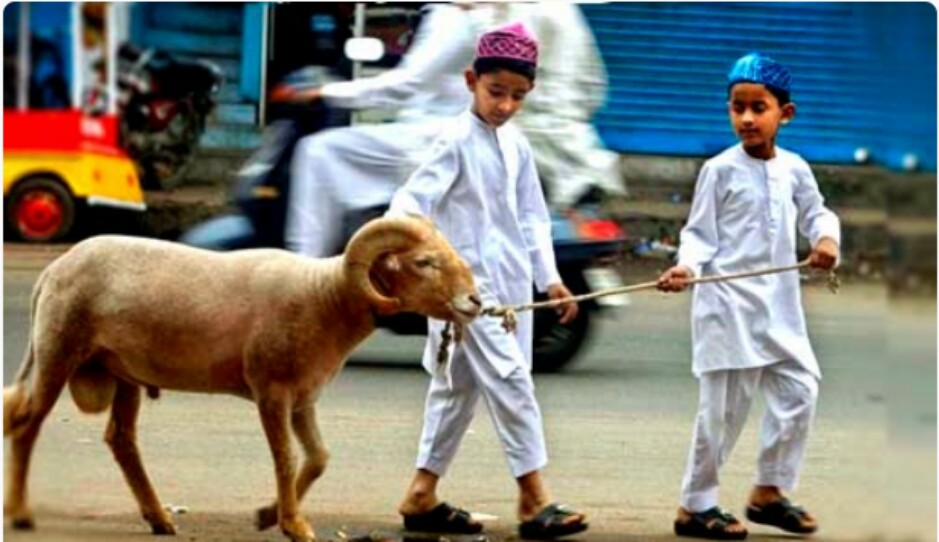



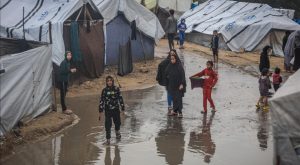
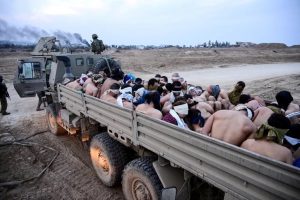




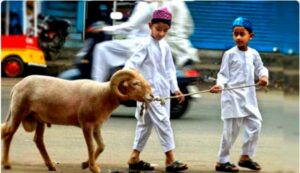

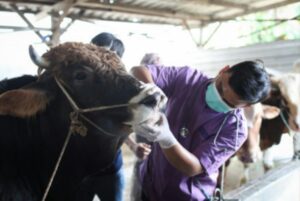

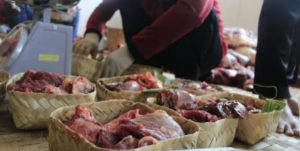











 Mina Indonesia
Mina Indonesia Mina Arabic
Mina Arabic